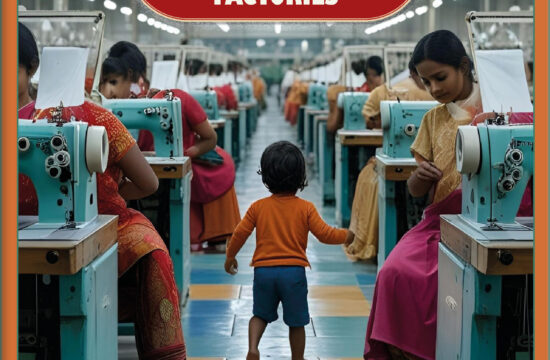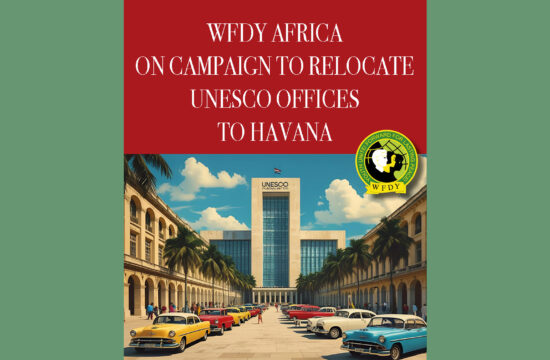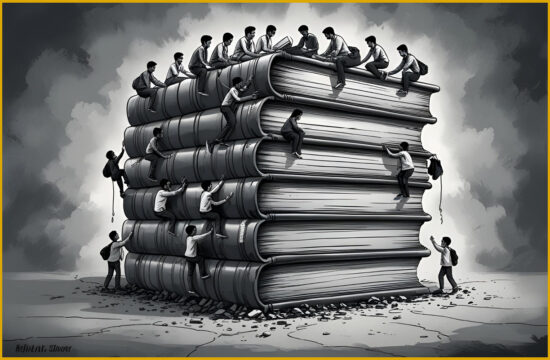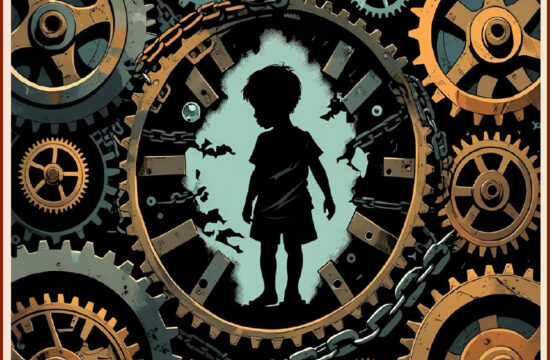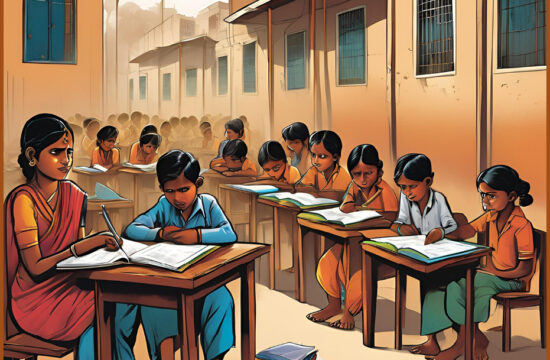Progress of an initiative started on 1st September 2023
Background
In the current global context, the dignity, security, and rights of garment workers are under unprecedented strain. Buyer-driven supply chains reward the lowest cost and fastest turnaround, creating a race to the bottom in wages, hours, and safety. Short lead times, volatile orders, and tiered subcontracting push risk onto factories and homeworkers, normalizing unpaid overtime, precarious contracts, and union-busting. New technologies—from algorithmic scheduling and biometric surveillance to AI-assisted quality control intensify pace and monitoring without sharing productivity gains. Migrant and women workers face compounded vulnerabilities, including harassment, unsafe dormitories, and barriers to grievance redress.
Neoliberal policy frameworks and export-oriented strategies have prioritized investor incentives over labor protections, narrowing space for collective bargaining and weakening enforcement. As production relocates to jurisdictions with weaker oversight, abuses are displaced rather than solved, fragmenting accountability across borders. Cut-make-trim pricing, just-in-time ordering, and sudden cancellations enable wage theft and mass layoffs, while social audits often miss off-the-clock work, forced overtime, and retaliation against organizers. Natural disasters, pandemics, and geopolitical shocks further expose how quickly risks are shifted to workers when brands withdraw or suspend orders. The result is systemic precarity that traps households in debt and erodes community well-being.
This mixture of globalization, flexibilization, and digitalization has produced a structural power vacuum: workers shoulder the greatest risks but hold the least leverage to negotiate fair terms. Local or national remedies cannot alone address harms engineered by transnational
purchasing practices and dispersed ownership. A coordinated global response is therefore essential—anchored in binding human-rights due-diligence obligations for brands, enforceable living-wage and freedom-of-association standards, worker-led monitoring with meaningful access to supply-chain data, and cross-border grievance mechanisms with swift, collective remedies. Only through such concerted, rights-based intervention can the industry move from extractive production models to dignified, secure, and equitable work for those who make the world’s clothes.
Who We Are?
(The Network)
We are a coalition of trade unions and grassroots organizations working on and around the rights of garment workers across the Global South. We bring together democratic, worker-led unions and civil society allies from Bangladesh, Lesotho, Pakistan, Sri Lanka, Egypt, Uganda and Türkiye will ensure simultaneous and synchronized joint action by the textile and related unions.
Current participating
organizations include:
• Bangladesh National Trade Union Federation (BNTUF) I BANGLADESH
• Bangladesh Apparel Workers Federation (BAWF) I BANGLADESH
• Sommilito Sramik Federation (SSF) I BANGLADESH
• Bangladesh Songjukto Garment Sramik Federation I BANGLADESH
• National Trade Union Federation of Pakistan I PAKISTAN
• United Textile Employees (UNITE) I LESOTHO
• Lentsoe La Sechaba Workers’ Union (LSWU) I LESOTHO
• Stand Up Movement Lanka (SUML) I SRI LANKA
• BİRTEK-SEN I TÜRKİYE
• DEV TEKSTİL I TÜRKİYE
• Egyptian Democratic Workers Union I EGYPT
We This list reflects the groups currently engaged in the drafting/consultation process and will continue to grow as outreach proceeds.
Open invitation: We extend a standing invitation to independent trade unions, worker organizations, and civil society groups anywhere in the world that share these values and aims to join this network and help shape the work ahead.
Common Joint Demands (Example)
1. Brand-funded childcare: Brands must establish, co-fund, and maintain quality day-care/
early-childhood centers near workplaces, with hours that match shifts and open access for all workers’ children, including migrants.
2. No order-flight during crises: Brands must not pull or shift production to dodge national/global crises or lawful worker actions. Commit to responsible sourcing: stable volumes, fair lead times, 12–24-month continuity, and honoring existing CBAs.
3. Freedom of association & collective bargaining: Safe to join a union; simple registration; no retaliation or blacklisting; enforceable CBAs; reinstatement with back pay when rights are violated.
4. Occupational safety & health: Independent inspections; active OSH committees; building/fire/boiler/electrical safety; heat-stress prevention; training; recognition of occupational diseases and reproductive health protections and Ratification of ILO Convention: 155 & 187. Periodic medical examination, especially on women, as textile industry is full of chest diseases, which exposes the nostalgia to be affected by this pollution.
5. Gender justice & social protection: Prevent and remedy GBVH; equal pay for equal value; maternity & paternityprotection and safe transport; implement ILO C190/C183; accessible healthcare, injury compensation, and pen- sions—linked to childcare access.
6. Country Labour Law and ILO Labour Standard
7. Climate Change, Just Transition should be addressed with Job protection and skill development training/ retraining
8. Human Rights & Environment due diligence ++
9. Living wages and benefits.
10. Labour contract in order to have job security
11. Minimum wage, taking into account the currency difference be- tween member countrie.
How We Work Together
(Structures & Coordination)
• General Assembly (GA): Meets online each quarter; in person yearly when possible. Sets direction, membership, and public positions.
• Coordinating Committee (CC): 7–11 members across regions, rotating yearly; keeps work moving between GA meetings.
• Working Groups (WGs): Wages & CB; OSH; Gender & GBV; Legal & Labour Law; Education & Skills; Brand Research & Rapid Response; Media & Campaigns— each co-led by at least three unions.
Membership & Commitments:
Tell the truth fast about brand behavior and incidents. Keep to shared action calendars (no undercutting). Contribute to the Solidarity Fund (cash or in-kind). Reject discrimination of any kind. Protect organizers and survivors of GBVH. Invest in education—steward exchanges, organizer trainings, and political education—so every worker can lead.
Our First-Year Plan (Example)
• Living-Wage Campaign: Map shared buyers, pick 2–3 global targets, and synchronize actions.
• FOA Rapid-Response: Use one standard playbook for dismissals/ attacks: legal aid, brand pressure, embassy outreach, petitions, and synchronized actions.
• OSH Drive: Build factory-level committees, deliver training, and publish quarterly safety bulletins.
• Gender & GBV Taskforce: Model agreements, safe complaint pathways, survivor support, and national pushes for ILO C190/ C183.
• Media & Outreach: Shared visuals, press kits, and global days of action.
When This Starts
(Duration & Signatures)
This Agreement starts once (Number) unions from three regions sign. We review it every year to keep it alive to workers’ needs.
The TUSA trade unions agreed on 11th August 2025 to launch the campaign „The right to open creches/kindergartens/primary schools in textile factories“ as the first joint solidarity action.
• Bangladesh National Trade Union Federation (BNTUF) — Bangladesh
• Bangladesh Apparel Workers Federation (BAWF) — Bangladesh
• Sommilito Sramik Federation (SSF) — Bangladesh
• Bangladesh Songjukto Garment Sramik Federation — Bangladesh
• National Trade Union Federation of Pakistan — Pakistan
• United Textile Employees (UNITE) — Lesotho
• Lentsoe La Sechaba Workers’ Union (LSWU) — Lesotho
• Stand Up Movement Lanka (SUML) — Sri Lanka
• Egyptian Democratic Workers Union — Egypt
• DEV TEKSTİL — Türkiye
• Uganda Textile, Garment, Leather and Allied Workers‘ Union — Uganda


